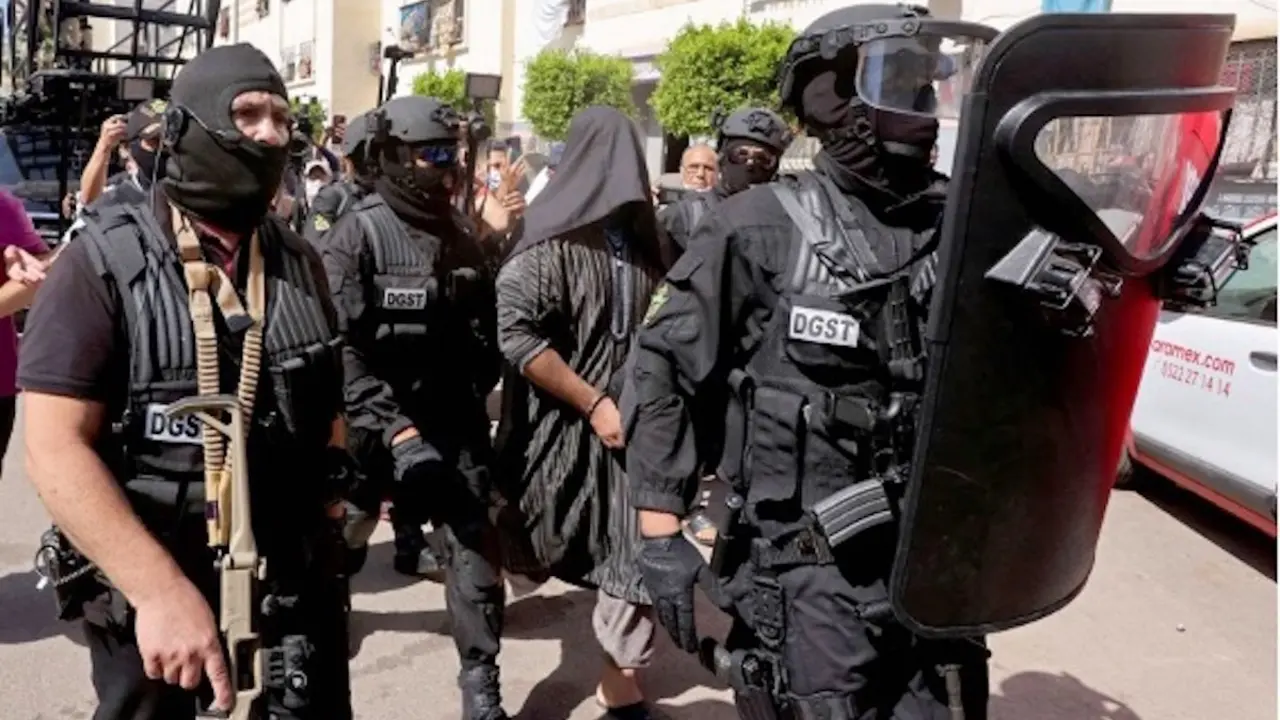India tries to put the challenges of the global south at the heart of the G20

India is in charge of organising and hosting the G20 Foreign Ministers' Summit, which kicks off today in New Delhi. The meeting is expected to be marked by the ongoing war in Ukraine, as was the case during the last G20 leaders' summit in Bali in November.
However, Indian Prime Minister Narendra Modi wants to steer the agenda of the meeting towards the priorities and challenges facing the global south, such as climate change, food and energy security, digital transformation and inflation.
"Hope we will try to solve things at G20", says EU's Josep Borrell in Delhi @WIONews pic.twitter.com/PEx63G4l5I
— Sidhant Sibal (@sidhant) March 1, 2023
Days before the start of the meeting, Modi noted that food and energy security had become "one of the major concerns across the world". "Even the financial viability of many countries is threatened by unsustainable levels of debt," he said. As Reuters revealed last week, New Delhi is drafting a proposal for G20 countries to help debtor nations. Lenders, including China, will be asked to reduce lending.
Also, India's neighbours, such as Sri Lanka, Pakistan and Bangladesh, are seeking urgent loans from the International Monetary Fund.
Always a pleasure to meet FM Naledi Pandor of South Africa. This time in New Delhi for #G20FMM.
— Dr. S. Jaishankar (@DrSJaishankar) March 1, 2023
Discussed G20 focus areas and the agenda of our Ministerial. Also exchanged views on BRICS.
Appreciated the growth in our bilateral relationship. pic.twitter.com/racTUGxw6y
Modi also alluded to rising inflation caused by disruptions in global supply chains. "Many societies are suffering due to rising prices," he said. In addition to these issues, Modi mentioned the "rising geopolitical tensions in different parts of the world".
India is emerging as a major world power. Last year, the Asian country became the world's fifth largest economy, overtaking the United Kingdom. India's growth is expected to continue to rise, with the IMF forecasting that it will reach fourth place by 2027.
In addition to economic progress, India is also growing demographically. Forecasts indicate that the country could soon overtake China to become the world's most populous country.
Arrived in New Delhi, India, for the #G20 Ministerial Meeting. Received on arrival by the Nigerian High Commissioner to India, H.E. Ahmed Sule and Puneet Roy Kundal, Joint Secretary, Indian Ministry of External Affairs.@NGRGov @NigeriaGov pic.twitter.com/1vCY11w6eq
— Geoffrey Onyeama (@GeoffreyOnyeama) March 1, 2023
In this sense, India hopes to emerge as a leading nation in the global south. Modi will use the summit to highlight the challenges facing the countries that encompass this concept. Challenges that, however, "have not been created by the global south, even though it is the most affected", as Modi said during a meeting with other leaders from the region.
If Modi manages to give a voice to these problems and put them on the international agenda, "it will be an interesting development", Indian analyst Sanjaya Baru told EFE. "In the last two decades, the voice of the global south has been silenced, with China, for example, focused on itself, and the West obsessed with its own problems," Baru told the Spanish news agency.
In the words of Ashok Malik, a former advisor to the Indian Ministry of External Affairs - quoted by DW - India is a country with "a deep intersection with the West in terms of strategic goals and values", although it also "has deep roots in the global south". For this reason, Delhi has sought to position itself between G20 members from the developed world and the global south.
This Indian duality is also seen, for example, in the confrontation between Russia and the West. Delhi has avoided directly criticising Moscow over the invasion of Ukraine, in fact, it was one of 32 countries that abstained from voting on the recent UN General Assembly resolution on the conflict. In this regard, Modi has always been open to any dialogue that could resolve the crisis.
Delhi: Russian Foreign Minister Sergey Lavrov takes part in the opening ceremony of Leo Tolstoy – Mahatma Gandhi exhibition. pic.twitter.com/EZHLVRSLq9
— Sidhant Sibal (@sidhant) March 1, 2023
"Russia was a friend in India's poorer years in the 1950s and 1960s, when it gave us access to technology that in some cases the West denied us," Malik recalls. However, he also qualifies that Indian society cannot be described as 'pro-Russian' or 'anti-Western', as Delhi has close ties with Washington and Europe.
Malik also believes that the West has not focused sufficiently on international problems that particularly affect the countries of the global South because it has been too preoccupied with the war in Ukraine. Challenges that have been accentuated "by the current fertiliser, food and energy crises caused by both the pandemic and the war".
A wide ranging discussion with FM Sergey Lavrov of Russia on #G20FMM sidelines.
— Dr. S. Jaishankar (@DrSJaishankar) March 1, 2023
Exchanged views on our bilateral cooperation and G20 issues. pic.twitter.com/czRgKNo00E
Despite Modi's attempts to highlight the challenges of the global south, the war in Ukraine, as well as international tensions, are likely to feature prominently during the summit due to recent developments. Relations between the US and China have been strained in recent weeks due to the spy balloon case. Washington has also warned that Beijing is considering arming Russia in the war.
Meanwhile, Moscow has decided to suspend the nuclear arms reduction treaty it reached with Washington in 2010 as the war rages in several parts of Ukraine, including Bakhmut, where "the situation is the most difficult", according to Ukrainian President Volodimir Zelensky.








